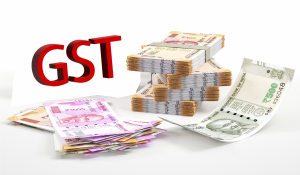 The government is looking at decriminalising some provisions under the Goods and Services Tax (GST) by allowing compounding of offences and making arrests exceptional.
The government is looking at decriminalising some provisions under the Goods and Services Tax (GST) by allowing compounding of offences and making arrests exceptional.
“This is in the works… It would be taken to the GST Council,” an official, aware of the deliberations, told ET. A final call would be taken after the council’s nod.
The proposal entails raising the threshold of cognizable and non-bailable offences under Section 132 of the Central GST Act to ₹20 crore from ₹5 crore now and attaching bank accounts only for serious and high value offences under Section 83.
It would also look at revamping Section 138 of the Act, which deals with compounding of offences.
Section 132 deals with punishment of offences including falsification of documents for obtaining refunds, dealing in confiscated goods, abetting in commission of offences, and obstructing officers from discharging their duties. All these four offences are cognizable and non-bailable for offences under Rs 5 crore.
A cognizable offence is one where the offender can be arrested without a warrant. In a non-bailable offence, the offender is required to be produced before a judicial magistrate within 24 hours of the arrest.
Another pain point for the businesses is Section 83 of the Act, which allows the tax authorities to provisionally attach properties of taxpayers, including bank accounts for one year. Industry has been clamouring for a re-look at the provision.
Businesses have complained about the existing GST law allowing liberal use of arrest provisions, merely on suspicion of someone having escaped tax liability even before an investigation is completed, leaving enough room for potential misuse or harassment.
A proposal in this regard was earlier examined in 2020. But not much headway was made in the wake of rise in instances of tax evasion.
The government has rolled out an initiative to clean up the statute book of redundant and old laws or provisions that have over the years lost relevance and to decriminalise offences and switch to monetary penalties.
Prime Minister Narendra Modi had identified this clean up as one of the key focus areas, which was also part of the Bharatiya Janata Party’s poll promise. Modi had said, if the party came to power, for every law passed, his government would scrap 10 obsolete or archaic laws.
A number of laws have already been decriminalised, including the Companies Act and the Merchant Shipping Act, while some others are in the process.
The Central Board of Indirect Taxes and Customs has undertaken several measures to prevent harassment of businesses, including laying down a detailed procedure for sending notices, summons and arrests under the GST Act.
Source: The Economic Times
https://economictimes.indiatimes.com/news/economy/policy/threshold-for-criminal-offences-under-gst-law-may-be-raised/articleshow/94439928.cms
For more News like this, Subscribe TAXO today


